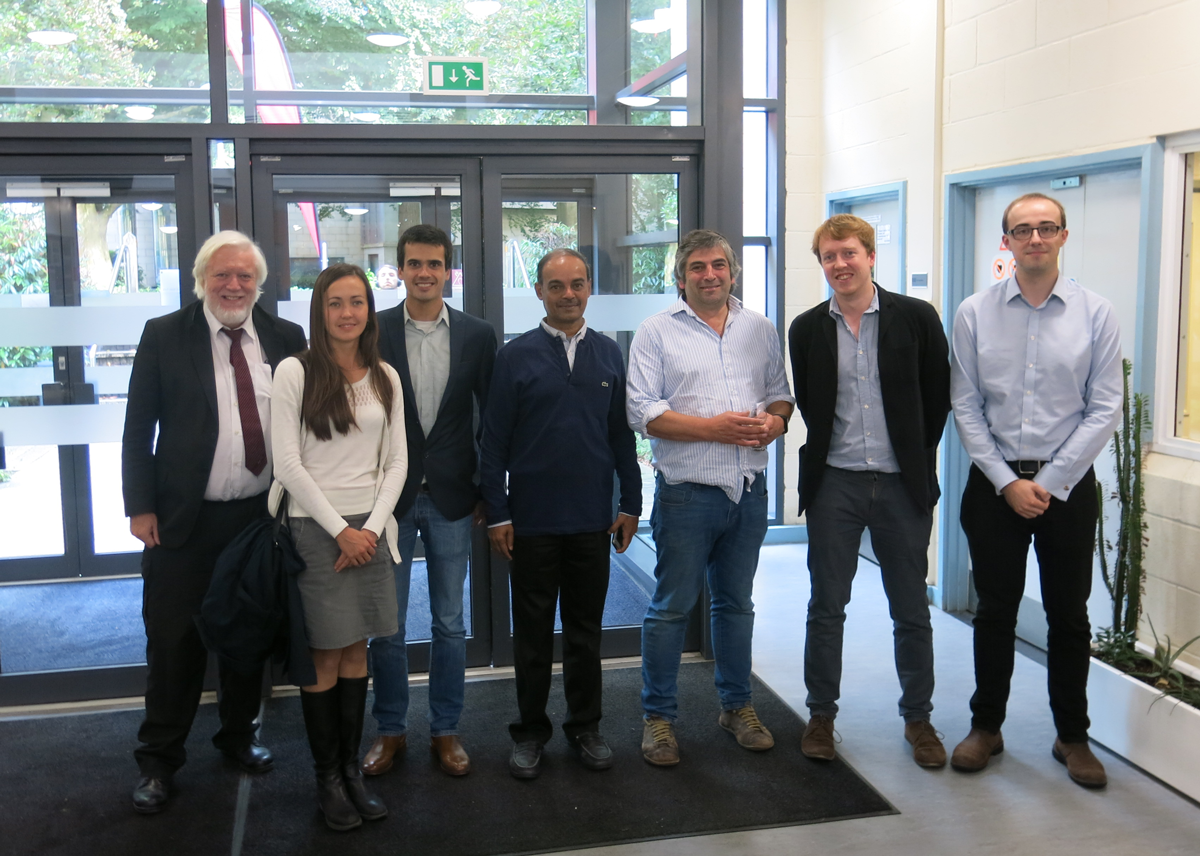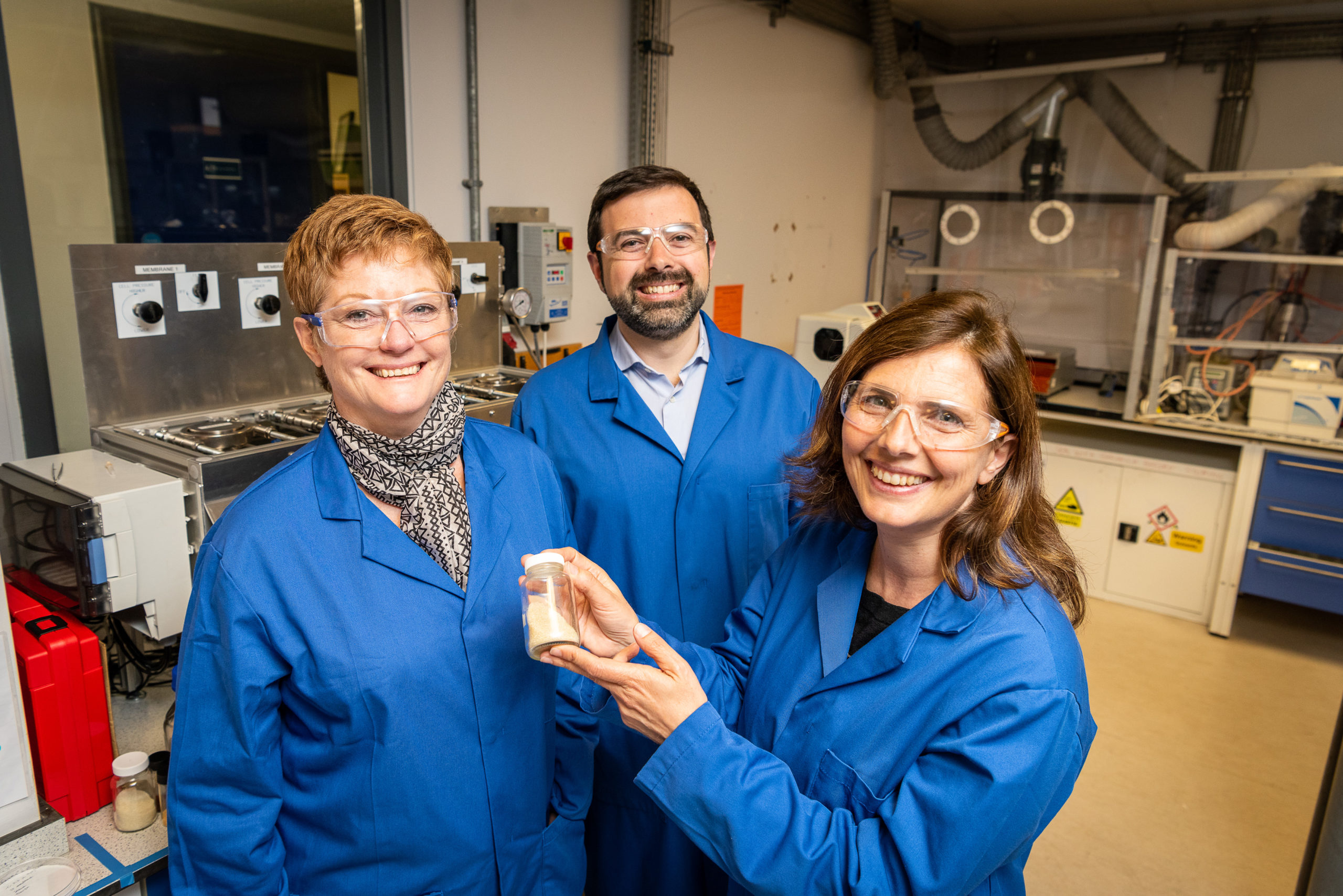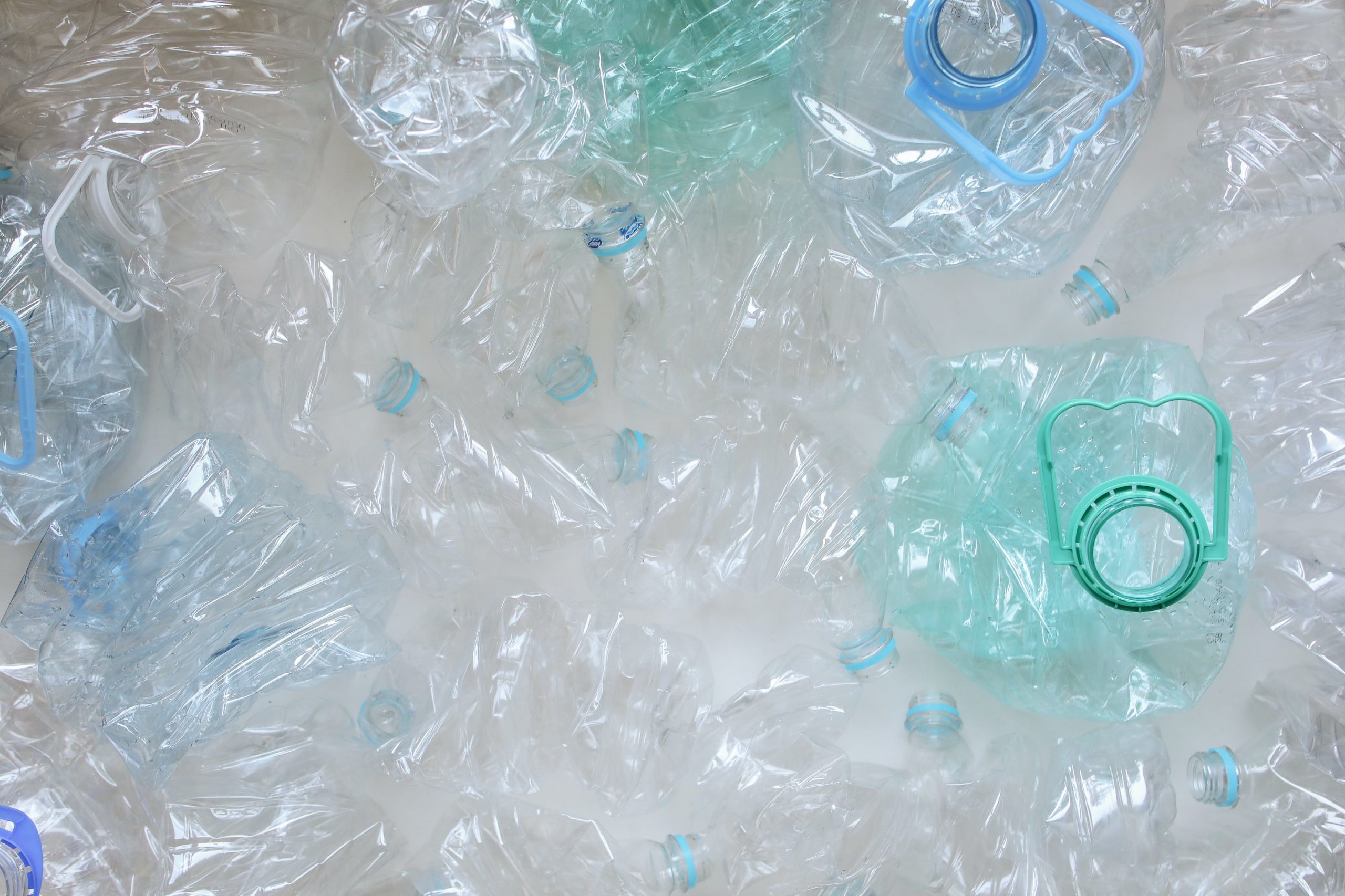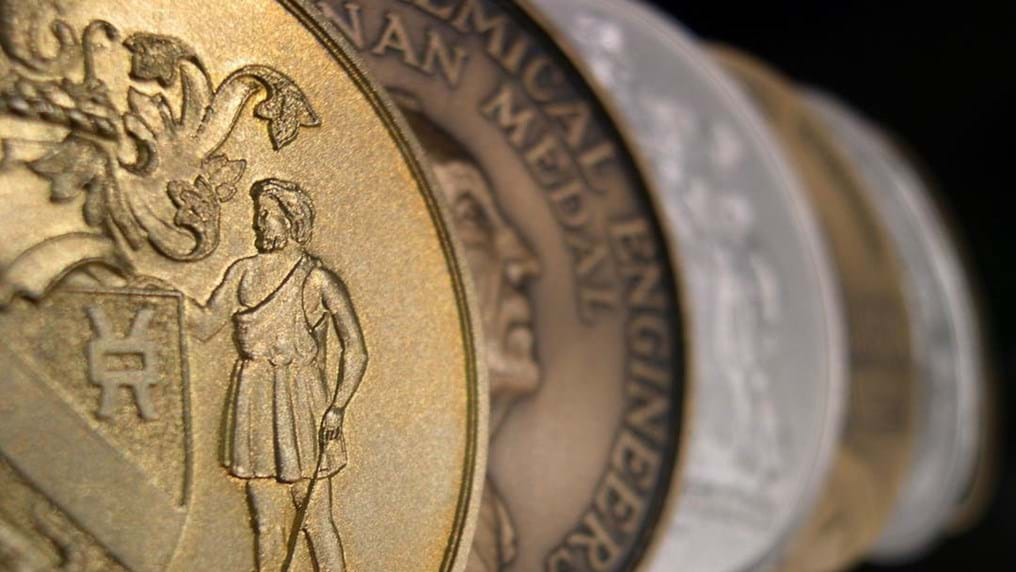
Successful catalysis symposium hosted Professor Selvam from IIT and welcomed early career researchers to Bath
On 14 September, we were pleased to host Professor Parasuraman Selvam from Indian Institute of Technology (IIT) – Madras and to welcome new early career researchers to Bath. See list of speakers and talk titles below:
Professor Parasuraman Selvam, Indian Institute of Technology, Madras: ‘Ordered Nanostructured Materials for Sustainable Catalysis’
Dr Matthew Grayson, Lecturer, University of Bath: ‘Theory and Modelling of Asymmetric Catalytic Reactions’
Dr Elizaveta Suturina, Prize Fellow, University of Bath: ‘Extracting electronic structure information from paramagnetic NMR: from contrast agents to reaction monitoring’
Dr Simon Freakley, Prize Fellow, University of Bath: ‘Single atom catalysts in gas phase and electrochemical reactions’
Dr Alex O’Malley, CSCT Whorrod Research Fellow: ‘Molecular behaviour in microporous catalysts: neutron scattering and modelling studies’
Professor Selvam is currently a Professor in the Department of Chemistry of IIT-Madras and also leads the National Centre for Catalysis Research in Madras. In his talk, Professor Selvam discussed the recent progress on the development of numerous nanoporous materials including hierarchical structures and their applications in catalysis.
Professor Selvam commented: “It was nice to visit Bath and meet young researchers with so much enthusiasm, together with distinguished Professors like Matthew Davidson and Steve Parker with even more passion. I thank you all for your valuable time and wonderful discussions. I hope to continue our interaction in years to come.”
We also welcomed Department of Chemistry’s new lecturer Dr Matthew Grayson, our two new Prize Fellows Dr Elizaveta Suturina and Dr Simon Freakley, and our Whorrod Research Fellow Dr Alex O’Malley.
Dr Elizaveta Suturina came to Bath from the University of Southampton where she was working on spin dynamics of paramagnetic systems in Dr Ilya Kuprov’s group. Previously she worked on theoretical spectroscopy and magnetism of transition metal complexes in Prof Frank Neese’s group at the Max Planck Institute for Chemical Energy Conversion (MPI CEC) right after she finished her PhD project at the Novosibirsk State University in Russia under supervision of Professor Nina P. Gritsan.
Dr Suturina said: “I’m happy to join the CSCT as a Prize Fellow! It is a great opportunity to advance my research in computational chemistry and spin dynamics and apply it to the challenging problems of Sustainable Chemistry. Working in such a diverse and vibrant research centre is highly stimulating. I’m looking forward to establishing my own research group and will be delighted to work with talented CDT students.”
Before starting at Bath, Dr Simon Freakley held a Ser Cymru Research Fellowship funded by the Welsh Government to work on renewable energy utilisation in catalysis. He has held PDRA positions and led a collaboration between the Cardiff Catalysis Institute (CCI) and the Max Planck Institute in the MaxNet for energy conversion. This included working on a range of projects focused on preparing heterogeneous catalyst materials for a range of applications including water purification, methane oxidation, hydrogen peroxide synthesis and electrocatalytic water splitting. He completed his PhD in 2012 at CCI with Professor Graham Hutchings including holding a JSPS fellowship to work on gold catalysis in the group of Professor Haruta at Tokyo Metropolitan University.
Dr Freakley said: “It has been great to see the wide range of challenges being tackled with many different approaches, all of which will hopefully have impact on society. The symposium was a great chance to meet colleagues for the first time and has led to many discussions about potential research topics for the future.”
Thanks to CSCT PhD students Ria Atri, Rob Baker and Jacob Boswell who came together with Professor Steve Parker to organise this event.







